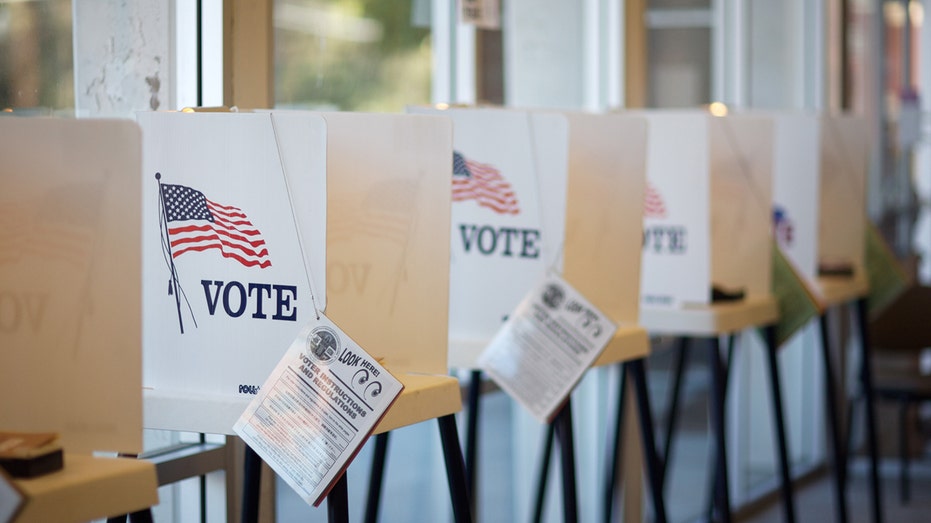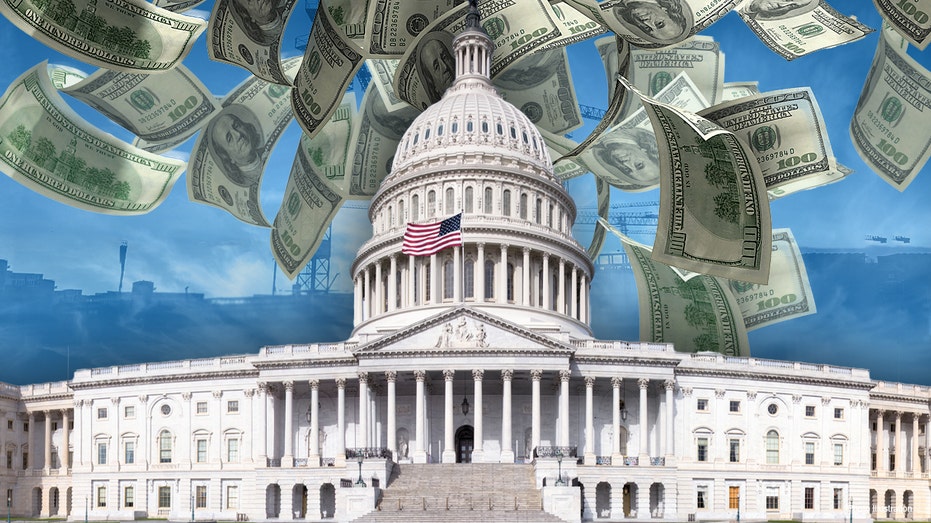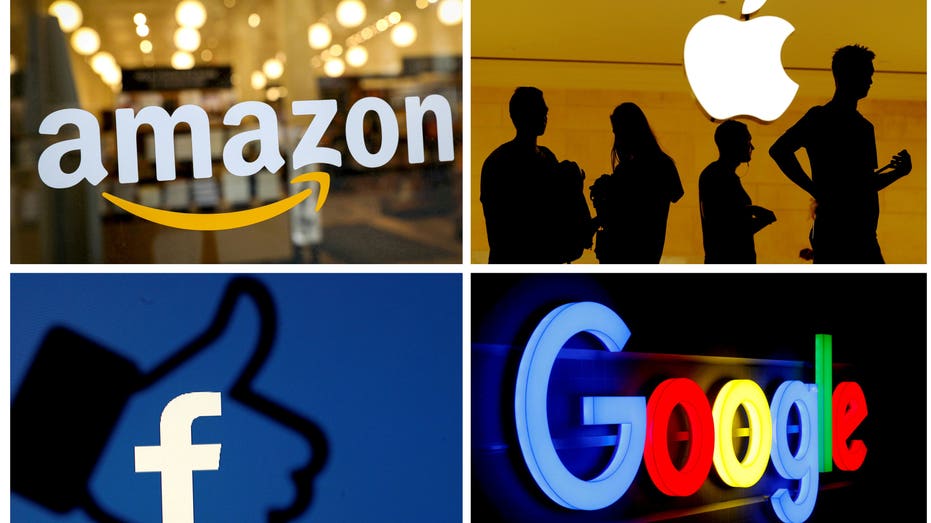Midterm elections & markets: An investor watch list
Stocks, taxes and Big Tech are all waiting to see what happens
Republicans gaining momentum in midterms: Rep. Buddy Carter
Rep. Buddy Carter, R-Ga., discusses the 2022 Georgia Senate race between Herschel Walker and Raphael Warnock, and blast's the White House's labeling of Republicans as threats to democracy on 'Varney & Co.'
Stocks, taxes, spending, healthcare and Big Tech could all potentially experience policy shake-ups depending on the results of Tuesday’s midterm elections.
There are a few potential outcomes – the Democrats retaining control of both the House and the Senate; the Republicans taking the House while Democrats hold the Senate; and the Republicans taking control of both chambers of Congress.
HERE ARE THE STATES THAT REQUIRE GIVING EMPLOYEES TIME OF TO VOTE
Banks, including JPMorgan, Morgan Stanley and Merrill Lynch, have noted recent polling indicates the most likely scenario is a divided government.

Voting booths at Hermosa Beach City Hall during California Primary
FiveThirtyEight described the Democrats and Republicans as being in a "dead heat" for the Senate on Friday. For the House, the Republicans were "favored" to win, according to the election polling and forecasting website.
Ahead of the midterms on Tuesday, FOX Business takes a look at top issues for investors and potential outcomes.
Stocks
There tends to be more volatility before, during and after Election Day because markets generally do not favor uncertainty.
HERE’S HOW THE MIDTERMS WILL AFFECT THE STOCK MARKET
Democrats retaining their hold on both legislative chambers – which JPMorgan described in an Oct. 28 post as being "generally considered the less likely outcome than a divided government" – could lead to more stock fluctuations. Meanwhile, the bank said Republicans taking the House and Democrats holding the Senate is "likely to be the least consequential for markets" due to gridlock.
Overall, however, midterm elections generally don’t have a huge impact on equity markets, according to JPMorgan, which noted the S&P 500 "has a tendency to move higher after the political uncertainty declines in the aftermath of midterms."
Merrill Lynch also reported stocks typically rebound after midterm-year volatility. Twelve months after the "midterm election-year low," equity markets tend to come in over 30% higher, according to an October report from its chief investment office.
When one party controls one chamber of Congress and the other party holds the other, short-term returns have historically been higher, according to Merrill Lynch. In the past, the S&P 500’s average gain over a two-year period post-election has been 18.7% with a divided Congress and 17.3% with the party holding the White House also having control of both chambers, per the report.
Taxes
Two of the potential midterm election outcomes would make tax increases unlikely: if Republicans gain control of both chambers or if the Republicans controlled the House but not the Senate, according to JPMorgan.
Under a divided Congress, Democrats and Republicans also could possibly reach an agreement for research and development expense deductions and enhanced child tax credits, Merrill Lynch said.
Meanwhile, proposed measures to increase taxes on corporations, wealthy individuals and capital gains could see revivals in the event the Democrats retain their hold on both the House and Senate, Morgan Stanley and Merrill Lynch reported.
Some proposals, like closing the carried interest loophole, got dropped prior to the Inflation Reduction Act getting finalized in August.
Spending
According to Merrill Lynch’s report, a politically-split legislative branch "will be viewed as less accommodative to new spending." The likelihood of a fiscal rescue package during an economic downturn would be lower as well, per JPMorgan.
However, there could be some instances of agreement if Republicans control the House and Democrats hold the Senate, particularly for increases in defense and cybersecurity spending, according to Morgan Stanley.

capitol building, raining money concept: istock ( istock / iStock)
There would likely be more spending restraint under Republicans holding both chambers, with one exception – defense spending, Merrill Lynch theorized.
REPUBLICAN LAWMAKERS MAKE FINAL MIDTERM ELECTION PUSH: WE'RE GOING TO HAVE A GREAT NIGHT
Democrats, if controlling both the House and Senate, would likely seek additional spending for certain proposals, such as housing aid, universal child care and Medicaid, according to some banks.
Healthcare
Legislative gridlock associated with a divided Congress could impede healthcare proposals that stray too far from center politically.
In the event Democrats keep both chambers, Medicaid and some other healthcare programs could see expansion, according to some Wall Street banks.
Measures such as Medicare for All and more controls on drug pricing would not be likely to move forward in a Republican-controlled House and Senate, according to Merrill Lynch. Republicans having both chambers could "cloud the outlook" for "any" healthcare-related proposals, JPMorgan projected.
Big Tech
Major technology companies are likely to see more regulatory scrutiny if Democrats maintain control of the House and Senate, according to JPMorgan and Morgan Stanley.

In September, President Joe Biden's administration called for reforms in the technology sector, including increasing competition, implementing limits on personal data collection and use, and more transparency. It expressed support for antitrust legislation.
JPMorgan said in October that "legislation on tech companies" and other aspects of Democrats' agenda were likely to be "off the table for the foreseeable future" should Republicans take both chambers.




















